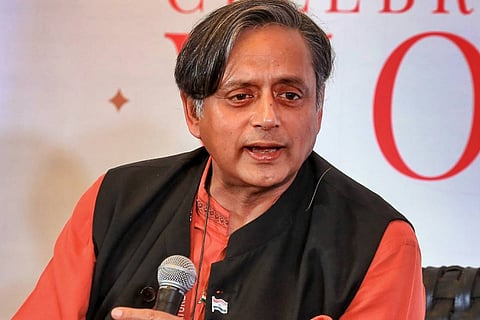

Days after praising Kerala’s startup ecosystem under the LDF government, Congress MP Shashi Tharoor has modified his stance following criticism from party colleagues and intervention by the high command. In a post on X, Tharoor expressed concern that the state's startup growth should not just exist on paper.
Disheartened to find that Kerala’s startup entrepreneurship narrative differs from the reports. The only silver lining is that the government's claims indicate the right intentions. We need more MSME startups, and not just on paper. Kerala must move in this direction!” Tharoor posted.
His change in stance came after referring to a news report highlighting the closure of several small and medium enterprises (SMEs) in the state. He further remarked that official figures may not reflect the full reality of the startup sector.
State Congress president K Sudhakaran welcomed Tharoor’s revised position, stating that he had made no serious mistakes. “Tharoor has clarified his remarks. I appreciate his willingness to correct himself,” Sudhakaran said in Kozhikode on Sunday, adding that he would stand by Tharoor like the apple of his eye.
Interestingly, despite questioning the startup claims, Tharoor was careful to acknowledge the intentions of the LDF government. His initial remarks, published in a column for TNIE on February 13, cited the 2024 Global Startup Ecosystem Report, which acknowledged a transformation in the startup sector under the communist-led government.
The statement stirred controversy within the Congress, with several state and central leaders criticizing Tharoor for seemingly praising the LDF government. Following the backlash, Tharoor took to Facebook to clarify that his observations were based on the Global Startup Ecosystem Report and that he was open to revising his stance if credible reports suggested otherwise.
Additionally, Tharoor credited former Chief Minister Oommen Chandy and former Industries Minister P K Kunhalikutty for Kerala’s industrial growth, reinforcing that the Congress-led UDF had also played a crucial role in the state's economic progress.
